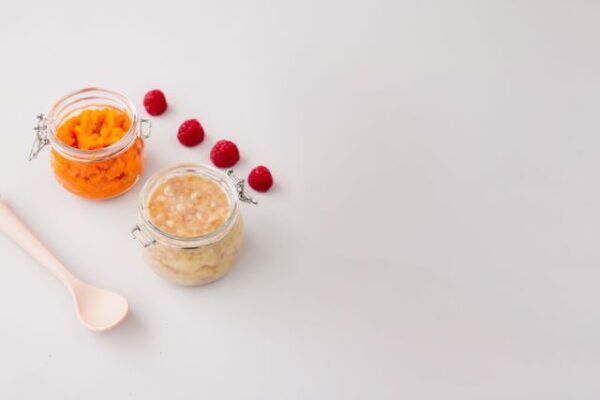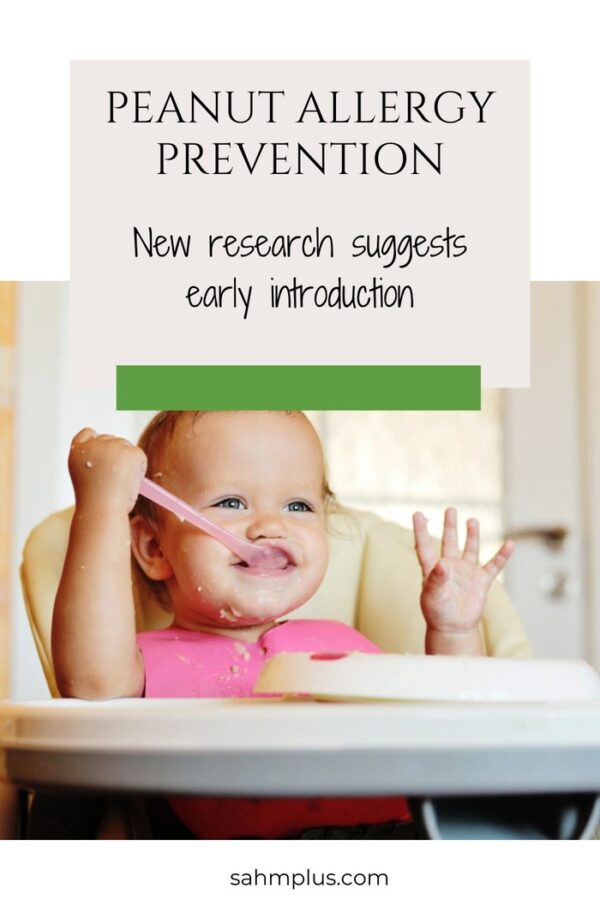If you’re like me, you’ve probably been through the rollercoaster of emotions that comes with feeding your little ones. As a mom with Gluten and Dairy allergies, I’m no stranger to the daunting task of navigating early food introductions. So, when I came across some fascinating research about peanut butter and allergy prevention, I just had to share it with you all.

Introducing Peanut Butter Early: What the Research Says
Recent studies from King’s College London suggest that giving smooth peanut butter to babies and young children can provide lifelong protection against peanut allergies. According to their research, teenagers who consumed peanut butter up to the age of five were 71% less likely to develop an allergy compared to those who avoided it.
Why Early Introduction is Key
The idea of giving peanut butter to our babies might sound scary, especially for those of us who know our children are at risk of developing allergic reactions. However, peanut allergies have become increasingly common, now affecting about one in fifty children. The researchers from King’s College discovered that our previous approach was actually counterproductive. It turns out that early childhood is a crucial time for the immune system to learn what’s harmful and what’s not.
How Peanut Allergies Develop
Food allergies occur when our immune system mistakes something harmless, like peanuts, for a threat. This can lead to severe reactions even from a tiny amount of peanut. About 15 years ago, a clinical trial involving 640 high-risk children revealed that early introduction of peanut butter significantly reduced the incidence of peanut allergies by the age of five.
Long-Lasting Protection
One of the most exciting findings from this study, recently published in NEJM Evidence, is that the protection from peanut allergies lasts well into the teenage years, even if the kids stop eating peanuts after age five. To put it in perspective:
- Among high-risk children who avoided peanuts, 15 out of 100 developed an allergy.
- Among those who regularly ate peanut butter as infants, only 4 out of 100 developed an allergy.

How to Safely Introduce Peanut Butter to Your Baby
Here’s how you can safely incorporate peanut butter into your baby’s diet:
- Start Early: Ideally, introduce smooth peanut butter after 6 months, when your baby is ready for solids.
- Frequency: Offer peanut butter three to four times a week, totaling about one and a half to two tablespoons weekly.
- Safety First: Ensure your baby can sit up and swallow food without spitting it out. Avoid whole or chopped peanuts due to choking hazards.
Practical Tips
- Mix smooth peanut butter into baby cereal or yogurt.
- Spread a thin layer on a piece of toast or soft fruit.
Trust the Process
It’s important to follow guidelines and consult with your pediatrician, especially if your child is at high risk for allergies. The National Institute of Allergy and Infectious Diseases backs this approach, emphasizing that early introduction according to established guidelines can offer lasting protection against peanut allergies.
In Conclusion
As a mom who’s dealt with mild allergy issues, I know how nerve-wracking it can be to introduce potential allergens. But the evidence is compelling: incorporating smooth peanut butter into your baby’s diet could be a simple yet powerful step to safeguard them against peanut allergies.
The question is, who is willing to risk it?
Has your doctor made any recommendations to try this?

